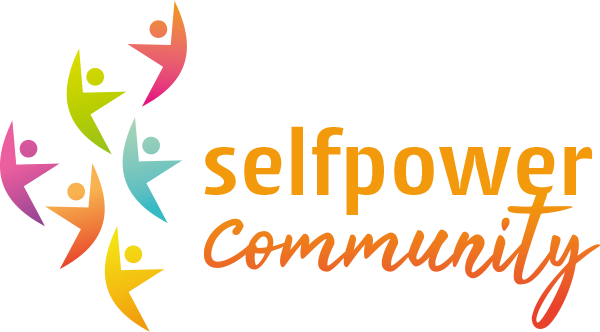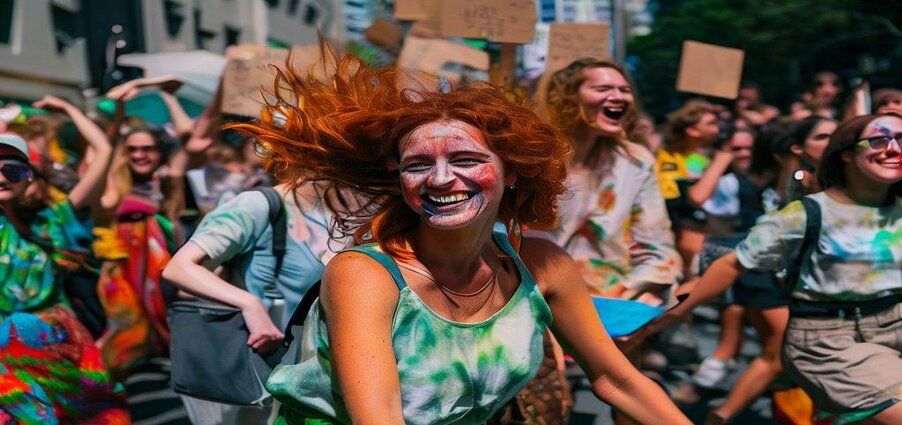63- 16/06/2023 In Australia, youths are taking to the streets for climate justice and denouncing government inaction. More than advocacy, these movements are seen as a process of empowerment, transforming activists into political actors with a collective responsibility for the climate. To study this social phenomenon, four researchers from Deakin University (Geelong) conducted an online questionnaire, collecting 511 responses from Australians aged 15 to 24. Selfpower-community has selected this article which discusses both citizen solidarity engagement and its impact on government. Here is a summary of the findings.
Most of young people (95.5%)[1] express concern about global warming. Conscious that if nothing changes, they will bear the brunt of its consequences. Therefore, they ask for ambitious measures and claim to be involved in their development.
Currently, decisions made tend to favor industrial groups. Therefore It is crucial for young people to increase their political power. In public health, there is a strong correlation between the political influence of individuals and their ability to voice their ideas in social movements for rights, based on action (Jacobson & Banerjee, 2005; Thomas & Daube, 2023). In fact, among all the social strategies used to make one’s voice heard, the most visible and impactful is the protest.
From these gatherings arises a powerful emotional connection. United around a common goal, protesters share their frustration and anxiety. They form a cohesive citizens’ assembly on the march.

” I was motivated by the idea that so many people were coming together for one cause, united in their mission to raise awareness among the public about this issue and take a stance against the government’s damaging policies.”—20-year-old male, South Australia
And indeed, mass protests organized by Extinction Rebellion(2) or Fridays for Future, widely covered by the press and social media, have increased public awareness, put pressure on decision-makers, and had intergenerational influence (Collin & Matthews, 2021).
A 17-year-old girl from Western Australia observes, ‘It forces the media to focus on the issue of climate change and give it visibility. It forces the public to think about how climate change affects the future of younger generations. (…) ‘… But it doesn’t necessarily compel the government to listen to the people, change laws, or take effective climate action. Faced with structural rigidities and the prevalence of individual interests over the common good, protesters lament the lack of commitment from policymakers and their indifference towards young people, who are rarely taken seriously. These are all obstacles to the emergence of bold and innovative approaches.
It’s the reason why protesters are putting pressure on the government to acknowledge the legitimacy of their voices, to offer them leadership opportunities, and involve them in decision-making processes.
Several avenues are being considered, including the concept of environmental citizenship, which would include lowering the voting age to 16 [3], closer collaboration between young people and public health organizations to implement joint action strategies.
Above all, youths no longer want to be seen as victims of the climate crisis but as individuals capable of positive change, who must be protected, consulted, and allowed to become full partners in the climate conversation (Arora et al., 2022)
Most importantly, young people no longer want to be seen as victims of the climate crisis but as individuals capable of positive change, who need to be protected, consulted, and recognized as full partners in the climate conversation.” (Arora et al., 2022).
Marie-Georges Fayn
*Arnot, G., Thomas, S., Pitt, H., & Warner, E. (2023). “It shows we are serious”: Young people in Australia discuss climate justice protests as a mechanism for climate change advocacy and action. Australian and New Zealand Journal of Public Health, 100048.
________
[1] The enquiry was conducted in july and august 2020
[2] https://selfpower-community.com/extinction-rebellion-changer-de-civilisation-2/
[3] The grown-ups have failed miserably on climate change – so us kids are going on strike to save the planet.- The independant, february 14th, 2019 –The grown-ups have failed miserably on climate change – so us kids are going on strike to save the planet | The Independent | The Independent
Arora, R., Spikes, E. T., Waxman-Lee, C. F., & Arora, R. (2022). Platforming youth voices in planetary health leadership and advocacy: an untapped reservoir for changemaking. The Lancet Planetary Health, 6(2), e78-e80.
Collin, P., & Matthews, I. (2021). School Strike 4 climate: Australian students renegotiating citizenship. When students protest: secondary and high schools, 125-143.
Jacobson, P. D., & Banerjee, A. (2005). Social movements and human rights rhetoric in tobacco control. Tobacco control, 14(suppl 2), ii45-ii49.
Thomas, S., & Daube, M. (2023). New times, new challenges for health promotion. Health Promotion International, 38(1), daad012.
Van Schalkwyk, M. C., Maani, N., Cohen, J., McKee, M., & Petticrew, M. (2021). Our postpandemic world: what will it take to build a better future for people and planet?. The Milbank Quarterly, 99(2), 467.
[1] L’enquête a été menée en juillet-août 2020
[2] https://selfpower-community.com/extinction-rebellion-changer-de-civilisation/
[3] The grown-ups have failed miserably on climate change – so us kids are going on strike to save the planet.- The independant, february 14th, 2019 –The grown-ups have failed miserably on climate change – so us kids are going on strike to save the planet | The Independent | The Independent





En postant un commentaire sur www.selfpower-community, vous acceptez les règles de l’espace réaction et reconnaissez à www.selfpower-community la capacité de ne pas publier certaines contributions sans avoir à motiver cette décision.
prendre connaissance des règles